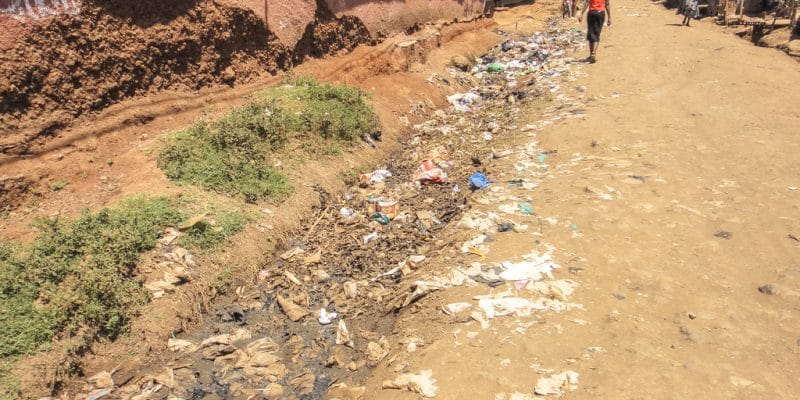The new Kenyan pact on plastic has just been launched by the government. The aim of this initiative is to move towards a sustainable management of plastic waste, the source of ecosystem pollution.
The fight against plastic pollution is taking a new trajectory in Kenya thanks to a pact. Called the Kenya Plastics Pact (KPP), the initiative brings together businesses, local governments, researchers, Non-Governmental organizations (NGOs), civil society, the informal waste sector and other stakeholders in the plastics value chain. The goal is to develop a circular economy for plastics by 2030 in Kenya.
As part of this, KPP members have committed to finding funding to support innovation, collection, reuse and recycling of plastic waste in Kenya. The East African country produces 480 tons of plastic waste per day, or 20% of the 2,400 tons of garbage generated per day according to the World Bank. The initiative will also create employment opportunities for Kenyans, especially youth.
Read also – AFRICA: the circular economy at the heart of ecosystem preservation
The Compact is supported by the Kenyan government through the Kenyan Ministry of Environment, the Kenya Private Sector Alliance (Kepsa), the Kenya Organization For Extended Producer Responsibility (Kepro), the Kenya Association Of Manufacturers (KAM), the Retail Association Of Kenya (Retrak), World Wide Fund For Nature (WWF) Kenya, Waste Electrical And Electronic Equipment (WEEE) Centre, Together For Better Foundation, Tierranjani Africa, Kenya PET Recycling Company (Petco), Nairobi Waste Collectors Association, and Ajira Digital and Employment Programme.
The KPP supports an anti-plastic law that has been in place since 2017 in Kenya and is still being implemented in a linear fashion, according to Karin Boomsma, the director of Sustainable Inclusive Business. This legislation makes the manufacture, import and sale of single-use bags punishable by up to 4 years in prison or fines of up to more than $40,503. The simple use of these bags also carries a fine of approximately $313 to $1,562, sometimes with a one-year jail sentence.
The new Kenyan pact comes as negotiations continue between Kenya and the United States to import 500 tons of plastic waste per year. This raises questions about the relevance of this new approach to plastics management in Kenya.
Inès Magoum







